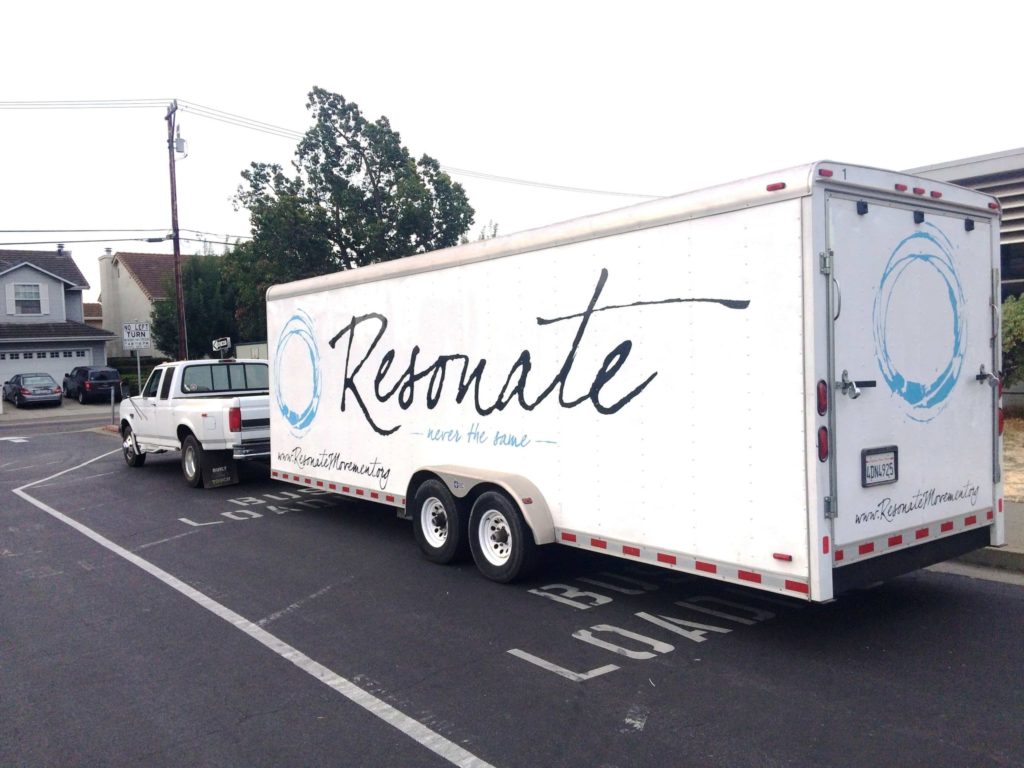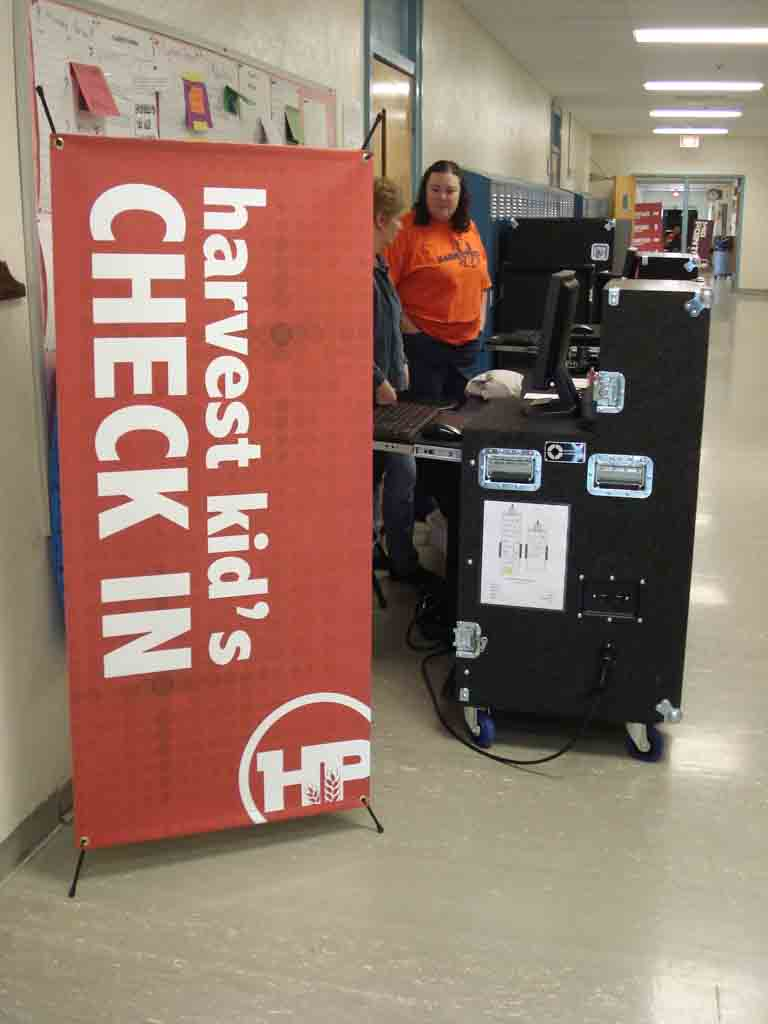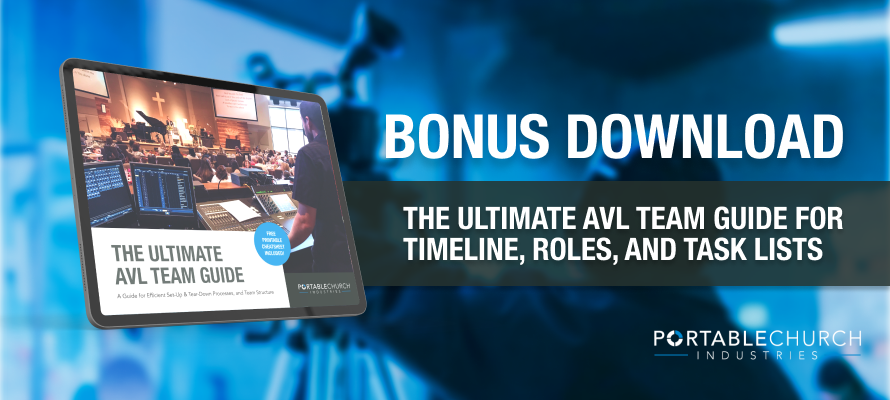The advantages of a portable church model are countless and well-worth considering for your church’s future.
If you or your team need an extra push toward planting a new church, look no further than these 10 convincing advantages of a portable church model.
Not everyone can adopt a vision and instantly see the benefits of a new plan. We know this, and want to support you in your decision to start a new church.
To jump quickly to the advantages in our list, use the convenient links below.
- Keeps creativity alive
- Blesses hosts and uplifts communities
- Keeps it simple by not owning a building
- More evangelistic
- Noticeably different, especially in small towns
- Creates a culture of flexibility
- Breaks stigmas
- Short-term commitment to space
- More money for ministry
- Volunteer roles create meaningful friendships
10 Unique Advantages of a Portable Church Model

1. Keeps creativity alive
Churchplants suggests that in mobile churches:
“…you have a chance to change things up quite a bit if you need to. You can move your stage around, move your chairs into different configurations, set up classes the way you need to or want to, and experiment with different approaches to space-usage.”
These factors may sound like a major inconvenience, but if you switch it around, this contributes to the major advantages of a portable church model. Rather than getting stuck in very mundane ruts of people having their favorite seats, or forming attachments to a specific configuration, a mobile church is far more fluid and provides opportunities for teams to try different approaches and experiment with ideas that suit the congregation best.
2. Blesses hosts and uplifts communities
Churchleaders cite that many of their portable churches have been able to be a huge blessing to their hosts. Kenny Buchard explains:
“When we were at the high school, we donated chairs (which we used on Sundays) and lots of cool stuff to the teachers whose classrooms we used for children’s ministry. At the YMCA, we actually painted several rooms, put new air conditioners on the roof, and regularly did grounds-keeping work for them because they didn’t have the staff or funds to do it themselves (and we wanted the place to look nice on Sundays).”
What an amazing way to bless your hosts and your community! And let’s not ignore that these acts of kindness and thoughtfulness advance the Kingdom, as non-believers are positively affected by God’s people.
Avoid people having their favorite seats or forming attachments to a particular configuration. Consider a portable church model for its fluidity and flexibility. Share on X3. Keeps it simple by not owning a building
Ben Mandrell explained in Outreachmagazine how his experience on a sprawling church campus meant that the church received “constant requests for use of the spaces.” At times, this was a blessing, as they “saw ministries birthed that truly made a difference.” But there were several cases of allowing ministries to launch without excellence and purpose, which was not aligned with their ethos and mission.
Mandrell explains that when a church is portable, it makes it easier to say, “Sorry, we can’t do that right now … we just don’t have the space.” The end.
Planting Perks: 5 Benefits of Starting a New Church
4. More evangelistic
It’s pretty easy for churches who own their buildings and have a campus to retreat within their walls and not need to venture out into the community and make connections.
One of the advantages of a portable church model is that it “allows you to add value to the place you are meeting, which will get the attention of community members as you tangibly show them your church cares,” says Josh Roberie, who is part of the ARC launch team.
A portable church model requires churches to be part of their communities, develop relationships, and show people they care rather than say they care. Not having the ‘safe place’ of a church campus encourages individuals and church bodies to be more evangelistic.

5. Noticeably different, especially in small towns
Portable church models are more prevalent in big cities, but establishing a mobile church in a small town will certainly turn heads and get people asking questions. This is something you want because it initiates new connections and can attract people who have always felt that traditional church buildings and campuses are too formal or foreboding.
Ignite Discipleship Network explains that “We get the opportunity to DO and BE something DIFFERENT. Most churches in most smaller towns are in traditional-style buildings. Being portable gives you the opportunity to do something different and meet in a non-traditional location, such as a hotel ballroom.”
Planting a portable church in a small town can shake things up for everyone and get people thinking and acting differently. Ultimately, it may lead to more attenders and, Lord willing, more believers.
Portable church models are more prevalent in big cities, but establishing a mobile church in a small town will certainly turn heads and get people asking questions. Ultimately, it may lead to more believers. Share on X6. Creates a culture of flexibility
Rich Birch, founder of Unseminary, states:
“Portable churches are used to regularly having to make quick decisions and adjust to meet the needs of the church within any number of surprising situations. The flexibility of portable church helps us all ask the question, How can we be the church right now? “
Operating out of buildings that are not church-owned requires everyone to be flexible and think creatively. This means that very little focus is paid to the building and the limelight falls on being the church. Setting up, tearing down, and utilizing the rooms and space one has in a multi-use facility means that being flexible is crucial, and people are less likely to get hung up on the traditional use of church buildings.
7. Breaks stigmas
By using a building that is not seen as a traditional church, the likelihood of you attracting unchurched people is far greater. Carey Nieuwhof, the founder of one of the most influential churches in North America, cites that 60% of their church growth is from “self-identified unchurched people.”
Nieuwhof says, “Many of them tell us they love our venue because it’s not a ‘church’. I’ve never had an unchurched person say ‘I will come when you have a real building.’”
An unfortunate fact is that stigma exists around traditional church buildings and part of the advantages of a portable church model is the absence of a ‘normal’ church building. Bingo.

8. Short-term commitment to space
When the space you need to operate out of does not meet your requirements, changes need to be made. If you own your church building, the changes need to be planned and funded by your church. You need building permission or you must raise funds to adapt what you have to suit your needs.
However, as Evan McBroom identifies in an article that weighs up portable and permanent church spaces, if you operate out of a portable church, all you need to do is look for a more suitable facility. There are no strings attached and you can cater to your church’s needs without needing to plan, save, build, or acquire permission to do so.
9. More money for ministry
Owning a building often means that there is a mortgage to pay. Portable churches don’t have this expense, which makes it a lot easier for them to pour money into ministry.
Connexus Church in Barrie, Ontario, is 5 years old and debt-free, with money in the bank for the future. In an article where he lists numerous advantages of a portable church model, Nieuwhof explains that because they don’t have a $6 million dollar mortgage to pay, “last weekend [their church was] able to spontaneously give a $5000 donation to aid flood relief in Calgary.”
10. Volunteer roles create meaningful friendships
It’s 6 a.m. on Sunday morning and you’re on the team to set up for church. You’re joined by several other people and together, you will construct all the pieces that your church needs to facilitate a time of worship for your congregation. Fast-forward a few months and you are now part of a tight-knit team with inside jokes, full-proof methods, and a sense of familiarity.
A portable church environment offers many opportunities for people to come together and focus on what it means to support the church and its mission. Volunteers are your portable church’s most valuable asset.
More volunteer tips: The Secret to Excellence and Volunteer Retention in Portable Churches
THE ADVANTAGES OF A PORTABLE CHURCH MODEL ARE VAST
These are just 10 advantages, but there are many more. If you want to hear more about the advantages of a portable church model, the best option is to reach out and chat to someone who has experience in the field of establishing new churches.
We help church planters like you go portable and sustain portability. Book a call with us today.
































































